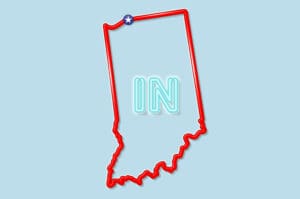The golden years should be a time of comfort and ease, and thankfully, for the residents of Indiana, there are numerous benefits designed to ensure exactly that. With an array of state and federal programs tailored to meet the needs of senior citizens, understanding and accessing these benefits can significantly enhance the quality of life for our elder Hoosiers. This post aims to demystify the realm of senior benefits in Indiana, providing a clear roadmap from application to maximization of these essential services for your loved ones.
Understanding Senior Benefits in Indiana
Indiana’s commitment to its senior population is evident through its comprehensive offering of benefits, spanning healthcare, insurance, financial assistance, and community support. These programs are a mixture of state-funded initiatives and federal support, ensuring a wide safety net for seniors across the state.
Navigating the Application Process
The first step toward improving your or your loved one’s quality of life through these benefits involves navigating the application process. While applying for benefits can seem daunting, Indiana has streamlined the process to make it as straightforward as possible. Eligibility criteria typically include age requirements, residency in Indiana, and family income thresholds, among others. Necessary documentation often encompasses proof of age, residency, income, and sometimes medical records, depending on the program’s focus area.
Comprehensive List of Senior Benefits in Indiana
Here’s a closer look at some of the key senior benefits available in Indiana:
- Medicare Assistance: Programs aimed at helping seniors cover healthcare costs, including Part D for prescription medications.
- Indiana’s Senior Property Tax Deduction: Eligible seniors can reduce property tax burdens, making homeownership more affordable.
- Energy Assistance Program: This program offers assistance with managing energy costs, including heating and cooling expenses.
- Community and Home Options to Institutional Care for the Elderly and Disabled (CHOICE): A program offering services that help seniors stay in their homes or communities as long as possible.
- Supplemental Nutrition Assistance Program (SNAP): Financial support to ensure seniors have access to nutritious food.
- Senior Farmers’ Market Nutrition Program (SFMNP): Vouchers for seniors to purchase fresh, local produce from farmers’ markets and roadside stands.
- Structured Family Caregiving: An innovative initiative, Structured Family Caregiving provides both financial and support services to family members who care for their elderly relatives at home. Recognizing the significant role family caregivers play in maintaining the health and welfare of seniors, this program offers a stipend, along with comprehensive guidance and resources, to ensure caregivers are well-equipped to manage the complex needs of their senior family members. Through this approach, Indiana supports the invaluable contribution of caregivers in fostering a nurturing environment that allows seniors to age gracefully within the comfort of their homes.

Real-Life Stories
The impact of these benefits on the lives of Indiana seniors cannot be overstated. Take, for instance, the success story of Martha, an Indianapolis resident who, through the CHOICE program, received the necessary home modifications to live safely in her own home, despite her mobility challenges. Or consider George from Fort Wayne, who has been able to manage his diabetes more effectively thanks to the assistance received for his prescription medications through Medicare Part D.
Tips for Maximizing Benefits
- Stay Informed: Benefits and programs can undergo changes. Regularly check official websites and communicate with local agencies for updates.
- Seek Assistance: Don’t hesitate to seek help from local senior centers, social services, or legal aid organizations when applying for benefits.
- Consider Your Needs: Carefully assess what types of support you need most—be it healthcare, nutritional assistance, or home care services—and prioritize applications accordingly.
- Engage with the Community: Many community centers offer workshops and seminars about senior benefits. These can be invaluable sources of information and support.
Conclusion
For seniors in Indiana, understanding and accessing the rich tapestry of benefits available can make all the difference in enjoying a fruitful and secure retirement. While the process may require some effort and navigation, the rewards—both big and small—are immeasurable. Senior benefits in Indiana are more than just financial assistance; they’re a testament to the state’s respect and care for its elderly residents. By taking advantage of these programs, Indiana’s seniors can look forward to years characterized not by hardship, but by well-deserved peace and joy.
Share This Article
